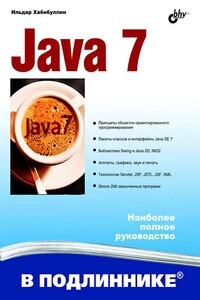Энциклопедия разработчика модулей ядра Linux | страница 9
> Device_Open++;
> /* Initialize the message. */
> sprintf(Message, "If I told you once, I told you %d times - %s", counter++, "Hello, world\n");
> /* The only reason we're allowed to do this sprintf
> * is because the maximum length of the message
> * (assuming 32 bit integers - up to 10 digits
> * with the minus sign) is less than BUF_LEN, which
> * is 80. BE CAREFUL NOT TO OVERFLOW BUFFERS,
> * ESPECIALLY IN THE KERNEL!!! */
> Message_Ptr = Message;
> /* Make sure that the module isn't removed while
> * the file is open by incrementing the usage count
> * (the number of opened references to the module, if
> * it's not zero rmmod will fail)
> */
> MOD_INC_USE_COUNT;
> return SUCCESS;
>}
>/* This function is called when a process closes the
>* device file. It doesn't have a return value in
>* version 2.0.x because it can't fail (you must ALWAYS
>* be able to close a device). In version 2.2.x it is
>* allowed to fail - but we won't let it. */
>#if LINUX_VERSION_CODE >= KERNEL_VERSION(2,2,0)
>static int device_release(struct inode *inode, struct file *file)
>#else
>static void device_release(struct inode *inode, struct file *file)
>#endif
>{
>#ifdef DEBUG
> printk("device_release(%p,%p)\n", inode, file);
>#endif
> /* We're now ready for our next caller */
> Device_Open--;
> /* Decrement the usage count, otherwise once you opened the file you'll never get rid of the module. */
> MOD_DEC_USE_COUNT;
>#if LINUX_VERSION_CODE >= KERNEL_VERSION(2,2,0)
> return 0;
>#endif
>}
>/* This function is called whenever a process which
>* have already opened the device file attempts to
>* read from it. */
>#if LINUX_VERSION_CODE >= KERNEL_VERSION(2,2,0)
>static ssize_t device_read(struct file *file,
> char *buffer, /* The buffer to fill with data */
> size_t length, /* The length of the buffer */
> loff_t *offset) /* Our offset in the file */
>#else
>static int device_read(struct inode *inode, struct file *file,
> char *buffer, /* The buffer to fill with the data */
> int length) /* The length of the buffer (mustn't write beyond that!) */
>#endif
>{
> /* Number of bytes actually written to the buffer */
> int bytes_read = 0;
> /* If we're at the end of the message, return 0 (which signifies end of file) */
> if (*Message_Ptr == 0) return 0;
> /* Actually put the data into the buffer */
> while (length && *Message_Ptr) {
> /* Because the buffer is in the user data segment,
> * not the kernel data segment, assignment wouldn't
> * work. Instead, we have to use put_user which


